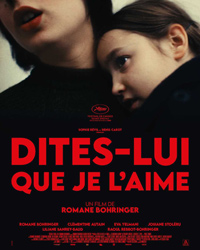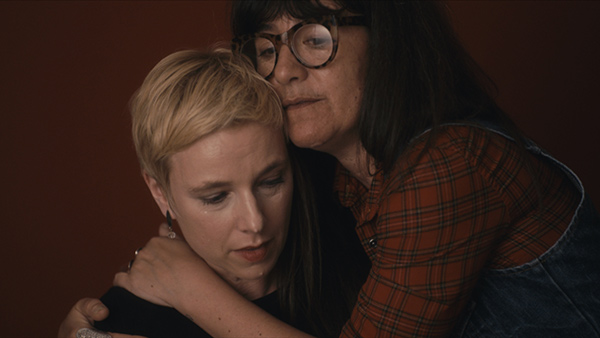The Family Tree Grows Tangled Roots In Romane Bohringer’s Metafictional Feature
 Family can make you and family can break you apart. The ties that bind are the same that can cinch too tight, leaving you bound to those that have done you harm. Loosening those bonds, finding yourself, and coming to an understanding of the person who raised you, as imperfect as they might’ve been, forms the heart of Romane Bohringer’s Dites-lui que je l’aime (Tell Her I Love Her). Echoing Sarah Polley’s Stories We Tell, though without reaching its emotional depth and complexity, the film nonetheless unravels a personal tale of a tangled family that is universal in its resonance.
Family can make you and family can break you apart. The ties that bind are the same that can cinch too tight, leaving you bound to those that have done you harm. Loosening those bonds, finding yourself, and coming to an understanding of the person who raised you, as imperfect as they might’ve been, forms the heart of Romane Bohringer’s Dites-lui que je l’aime (Tell Her I Love Her). Echoing Sarah Polley’s Stories We Tell, though without reaching its emotional depth and complexity, the film nonetheless unravels a personal tale of a tangled family that is universal in its resonance.
Based on the book by French politician Clémentine Audain about her turbulent relationship with her mother, Bohringer takes a metafictional and documentary approach in her adaptation to investigate her own upbringing. Bohringer and Audain’s mothers both abandoned them at a young age and struggled with addiction; the parallels of their past are almost eerie. The first half of the film sees Audain read passages from her memoir that Bohringer uses as a springboard to mount reenactments (with a terrific performance by Eva Yelmani) that echo her own childhood. The daughter of Marguerite Bourry, who palled around in artistic circles in France, Bohringer aims to sketch a fuller portrait of the mother she never quite knew. This journey gives way to a straightforward documentary in the film’s second half as Bohringer searches archives, letters, and conducts interviews to try and get her hands around a parent who was a chimera.

One wishes that Bohringer had chosen either a metafictional drama or straightforward documentary — we would’ve certainly preferred the latter. Bourry is a fascinating and haunted figure, born to a French father and Vietnamese mother in Indochina, given up for adoption, and spending most of her young life raised in a convent. As she entered adulthood, she “desperately wanted to exist,” nagging director Claude Miller to cast her, taking a small role in Juliet Berto and Jean-Henri Roger’s film “Neige,” and even earning a posthumous tribute in Cahiers du Cinema from none other than Wim Wenders (it’s a shame we don’t hear from the filmmaker directly who says “Wings of Desire,” is the script Bourry would’ve written). Bourry is celebrated for being an unearthly beauty, but the tragedy of her life never quite resonates. Bohringer’s story is that of someone eager to make her mark, but circumstance, addiction, and child rearing sees those opportunities pass her by.

Frequently, Tell Her I Love Her feels like therapy and that’s not just because Bohringer brings her therapist on camera. The picture is also about the director working out her resentments and the emotions she repressed, and confronting them by tracing her mother’s history. But what of Audain? She returns after a long absence as the picture closes, which only further begs the question why the serpentine narrative structure was required at all. Particularly with the late reveals that sprout even more roots from Bohringer’s family tree that beg for further exploration.
As Bohring laments she never got to experience a functional mother-daughter relationship — with phone calls, shopping, and sharing childcare experiences — it only pushes her to cling to her own family more closely. This includes casting her own son in a small role. Insular as it may be, Tell Her I Love Her communicates the need we all have for family, no matter the way in which they’re assembled.
Reviewed on May 19th at the 2025 Cannes Film Festival (78th edition) – Special Screenings. 92 Mins.
★★★/☆☆☆☆☆


